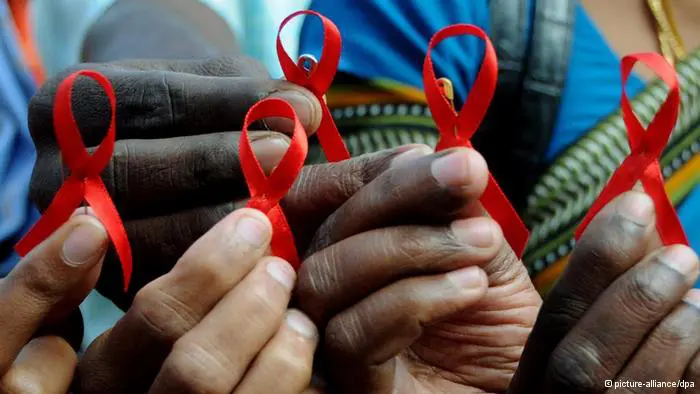1. Executive Summary
The Tanzania Community Support Organization (TCS) seeks to enhance its capacity-building
initiatives to support women living with HIV/AIDS (WHIV) across mainland Tanzania.
Established in May 2018 and officially registered in January 2022, TCS is a women-led NGO
dedicated to addressing the needs of marginalized populations. Our project aims to empower
WHIV by improving their access to health services, fostering economic independence, and
building a supportive community. We request $50,000 USD to implement this 12-month
capacity-building project.
2. Organization Background
TCS is committed to supporting community needs related to health, nutrition, disability, and
other critical issues. Our focus on marginalized groups, including WHIV, has driven us to
develop targeted interventions that address their unique challenges. Our team of dedicated
professionals and volunteers is committed to creating an inclusive environment where vulnerable
populations can thrive.
3. Problem Statement
Women living with HIV/AIDS face significant challenges, including stigma, discrimination, and
limited access to health services. These barriers hinder their ability to manage their health
effectively, secure employment, and participate fully in society. The lack of tailored support
services exacerbates their vulnerability and hampers their overall well-being.
4. Project Objectives
1. Enhance Access to Healthcare Services:
o Improve the availability and quality of health services for WHIV.
o Facilitate regular health screenings and adherence support.
2. Empower Economically:
o Provide vocational training and income-generating activities.
o Facilitate access to microloans and financial literacy programs.
3. Build Community Support:
o Develop support groups and peer networks for WHIV.
o Conduct awareness campaigns to reduce stigma and discrimination.
4. Strengthen Capacity of Local Healthcare Providers:
o Offer training workshops for healthcare providers on WHIV-specific needs.
o Improve the capacity of local health facilities to support WHIV.
5. Project Activities
1. Healthcare Access Enhancement:
o Partner with local clinics and hospitals to improve service delivery.
o Organize mobile health clinics for remote areas.
o Implement a health education program focusing on HIV management and
treatment adherence.
2. Economic Empowerment:
o Develop and deliver vocational training workshops in skills such as tailoring,
crafts, and small-scale business management.
o Establish a microloan program to support small business initiatives by WHIV.
o Provide financial literacy training to enhance economic independence.
3. Community Support Building:
o Create and support WHIV support groups to provide emotional and psychological
support.
o Launch awareness campaigns to educate the public on HIV/AIDS and reduce
stigma.
o Organize community events to promote solidarity and understanding.
4. Capacity Building for Healthcare Providers:
o Conduct training sessions for healthcare providers on the specific needs of WHIV.
o Equip local health facilities with necessary resources and tools.
o Develop and distribute resource materials to healthcare providers.
6. Expected Outcomes
1. Improved Health Outcomes:
o Increased access to and utilization of health services by WHIV.
o Enhanced adherence to treatment and improved health status.
2. Economic Independence:
o Successful establishment of small businesses by WHIV.
o Improved financial literacy and economic stability among participants.
3. Reduced Stigma and Enhanced Support:
o Increased community awareness and reduced stigma surrounding HIV/AIDS.
o Stronger support networks and peer support systems for WHIV.
4. Strengthened Healthcare System:
o Improved capacity of local healthcare providers to meet the needs of WHIV.
o Better-equipped health facilities to offer comprehensive support.
7. Monitoring and Evaluation
TCS will implement a robust monitoring and evaluation (M&E) framework to track the progress
and impact of the project. This will include:
1. Baseline and Endline Surveys:
o Conduct surveys at the start and end of the project to measure changes in health,
economic status, and stigma.
2. Regular Progress Reports:
o Prepare quarterly reports detailing progress towards objectives, challenges
encountered, and adjustments made.
3. Feedback Mechanisms:
o Establish channels for receiving feedback from WHIV participants and
stakeholders to ensure continuous improvement.
4. Impact Assessment:
o Perform a comprehensive impact assessment at the end of the project to evaluate
overall effectiveness and outcomes.
8. Budget
Item Amount (USD)
Healthcare Access Enhancement $15,000
Economic Empowerment $12,000
Community Support Building $10,000
Capacity Building for Providers $8,000
Monitoring and Evaluation $3,000
Administrative Costs $2,000
Contingency $500
Total $50,000
9. Sustainability
To ensure the sustainability of the project, TCS will:
1. Build Local Capacity:
o Train local organizations and community leaders to continue supporting WHIV
after the project ends.
2. Establish Partnerships:
o Collaborate with government agencies, other NGOs, and private sector partners to
sustain and expand project activities.
3. Create Self-Sustaining Models:
o Develop income-generating activities and support groups that can continue to
operate independently.
10. Conclusion
The proposed capacity-building project will address critical needs of women living with
HIV/AIDS by improving their access to healthcare, fostering economic independence, and
building community support. With a grant of $50,000 USD, TCS will implement a
comprehensive program that aims to empower WHIV and create lasting positive change in their
lives. We are committed to making a significant impact and appreciate your support in achieving
this vision.
Contact Information:
Tanzania Community Support Organization (TCS)
p.o.box 36033, Dar Es salaam Tanzania
tanzaniacommunity.tcs@gmail.com
www.tcstz.org
